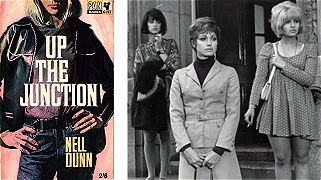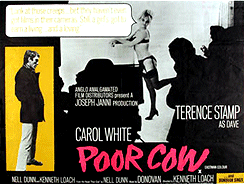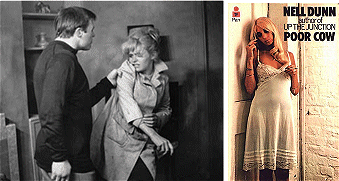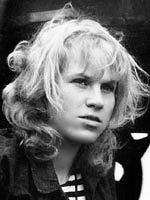Sixties
City presents
a wide-ranging series of
articles on all aspects of the Sixties, penned by the creator of the iconic
60s music paper Mersey
Beat
|
Sixties
City presents
a wide-ranging series of
articles on all aspects of the Sixties, penned by the creator of the iconic
60s music paper Mersey
Beat
|
||||||
|
 |
In
1959, when she was 23, the couple crossed the bridge from Chelsea and bought
a small house in Battersea for £700. She became enchanted with the people
and began to work in a sweet factory, later commenting, “I felt immediately
at home. I wasn’t lonely any more.” She recalled, “It was the most beautiful place I have ever been to. A grapevine grew wild over the outdoor lavatory and the garden was full of sunflowers six-feet high with faces as wide as dinner-plates. At the end of our street were four tall chimneys.” Battersea then became the subject of her book of short reminiscences of the area called ‘Up the Junction’, first published by MacGibbon & Kee in 1963 and as a paperback by Pan Books in 1966. The book became the subject of both a television play and a film. It was also awarded the John Llewellyn Rhys Memorial Prize. The television version was part of the BBC’s ‘The Wednesday Play’ series in 1965 and was directed by Ken Loach and featured Carol White. The film version was directed by Peter Collinson in 1968 and starred Suzy Kendall and Dennis Waterman, with the soundtrack by Manfred Mann. Although not a novel and containing short sketches of life in Battersea, it was similar to the voyage the affluent author had made by crossing from Chelsea into the working class community of Battersea and proved controversial because of the reference to back street abortions. |
 |
Her first
novel ‘Poor Cow’, set in Fulham and Catford, was published in 1967. It also
became a best seller and spawned a film version, directed by Ken Loach and
starring Carol White and Terence Stamp, once again focussing on the fortunes
of a 22 year old working class girl called Joy, with a young son Jonny.
Her husband is in jail, she has an affair with another man, who is also
sent to jail and she says, "To think when I was a kid I planned to conquer
the world and if anyone saw me now they'd say, 'She's had a rough night,
poor cow."' By the time they moved to Putney, the couple were quite a success as Sandford’s play ‘Cathy Come Home’, starring Carol White, caused national interest with its depiction of the plight of homeless people. Nell’s marriage with Sandford lasted until 1979, during which time the couple had three sons, and was officially dissolved in 1986. Nell continued to write both books and plays, and has published eight novels, but ‘Up the Junction’ and ‘Poor Cow’ remain her most successful works, although her play ‘Steaming’ in 1981 received acclaim and was also made into a feature film, directed by Joseph Losey and starring Vanessa Redgrave, Sarah Miles and Diana Dors. |
 |
 |
This
was the tale of six women in a Turkish bath discussing topics ranging from
sex, life and death to men. The play itself resulted in her being awarded
the 1981 London Evening Standard Award for Most Promising Playwright. She admits, “I have done books about the middle class, but they’ve never sold very well. People seem to prefer my working class stuff.” In 2003 she wrote the play ‘Cancer Tales’ inspired by the death of her father many years before. Her latest play is ‘The Swimming Pool’ which premiered in Guildford in 2007. |

|
|
Article
|